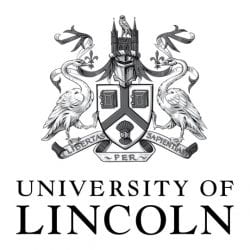Academics from the Lincoln School of Engineering have devised a streamlined new process which can detect faults in industrial machines.
Dr Jun Chen, Michael Gallimore, Professor Chris Bingham and Dr Yu Zhang, from the University of Lincoln, together with Professor Mahdi Mahfouf, from the University of Sheffield, have developed an algorithm that is more robust and efficient at identifying specific faults in automated mechanical processes.
With this improved detection and classification of faults, the time and money wasted on investigating false alarms will be reduced and a machine will be operational for longer periods.
The method combines two existing mathematical models for fault detection; a real-coded Genetic Algorithm (GA) and a K-means clustering methodology.
In a GA, a number of possible solutions to a given problem are changed and developed toward better solutions. Each set of possible solutions has a set of properties which can be mutated or altered. A GA proceeds to improve each set of solutions by repeating the application in each new generation of possible solutions until the optimum answer is found.
K-means clustering is a method of analysing a group of set objects with the aim of classifying the objects that are more similar to each other into clusters. Each observation then belongs to the cluster with the nearest central value.
The team at Lincoln discovered that the combination of these two processes into the G3Kmeans algorithm is more effective in quickly obtaining an optimum solution, requiring only 11 repetitions to detect a certain fault, whereas previous intuitive GA-based clustering methods go through more than 1,000.
Dr Chen said: “Data from industrial machines often involves a very complex search space. So, if you use conventional clustering algorithms you end up with misclassification. For example, non-faults are flagged as faults and vice versa. With the G3Kmeans algorithm you can reach a reliable classification – that is the first step towards optimal maintenance.
“With the previous intuitive GA-based clustering methods, every iteration of the process will search for the optimum solution once. You run the algorithm many times and every time the algorithm is modified based on the solution found from the last one, gradually improving the solution to the problem each time. This is not very effective due to the use of intuitive mutation operator. In terms of industrial machines this is the first step in creating an algorithm that optimises the search for a solution and can identify a fault with certainty. This method will reduce maintenance costs by reducing the amount of false alarms requiring investigation.”
Professor Mahdi Mahfouf, Head of the Intelligent Systems Research Laboratory at the University of Sheffield, added: “Nature-inspired algorithms have always had the advantage of dealing effectively with uncertain environments. Parts of these algorithms have already been applied in the metal industry for the production of steel and aluminium. This latest application is a testimony that processes that learn from human expertise or simply from nature are the way forward in solving real-world problems.”
The team will now look to optimise this strategy by making the algorithm more wide-ranging to enable its use to detect solutions for a variety of specific applications.
Dr Chen is also collaborating with the Universidad Castilla-La Mancha, Spain, to apply this research to the operation of wind turbines.
The research is detailed in the publication Fault Detection: Classification, Techniques and Role in Industrial Systems Eds. Peter W. Tse and C. Leung, Nova Science Publishers, Inc.












